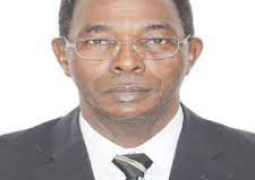
Although he never spoke about this experience in public, as he believed he was still bound by the Civil Service oath of secrecy, he must have seen all the intrigues of the last minutes of the PPP regime, and the first wobbly steps of the AFRPC Junta that ruled this country from July 1994 to September 1996.
He was Jawara’s Press Officer from May 1993 to the end of his rule. Alhaji Malick replaced Jay Saidy (1936-2001), the first substantive holder of ‘Press Officer, State House’ from 1982 to 1993. Hitherto, journalists from the Information Department got posted on daily basis to cover State House events. However, following the 1981 Kukoi coup attempt, Jawara was advised to hire a full time media point-man to help him handle professionally the heightened, and mostly negative press coverage Jawara and The Gambia received in the aftermath of the insurrection. When Jay ‘retyred’ (as he used to write) in 1993, Alhaj Malick was hired for this prestigious media job. He came into it with more than 15 solid years of radio journalism.
This journalistic voyage started in 1975, a year after he completed Armitage High School, when he was hired as Acting Assistant Producer in the same batch as Femi Jeng (1951-1981), ace radio personality who tragically lost his life in the Kukoi insurrection. By 1977, Alhaji Malick had been confirmed into the Civil Service as Assistant Producer, and his stellar career as a radio journalist started. He rose through the ranks to become Deputy News Editor at the national radio in 1982. In 1987, just before the general elections, he was appointed Head of News and Current Affairs.
This rise was indeed merit based. Alhaji Malick had caught his radio journalism teeth under the tough professional tutelage of the likes of Baboucarr Gaye (1951-2007) and Miss Sara Goddard (1948-). Alhaji Malick once told me that his first assignment was from Baboucarr and it was to interview Chief Sanjally Bojang (1910-1994) of Brikama who had just returned from a trip to the USA to teach the future president Jimmy Carter a few secrets about ground nuts cultivation.
But Alhaji Malick was also eager to learn more of the secrets of the journalism trade. Therefore, in 1988-1990, he studied for an MA degree in journalism in Wales. He studied whilst working as producer at the BBC African Service. This was the old African Service: interesting, informative, innovative programming presented by the likes of Hilton Fyle, Robin White, Chris Bickerton; not the one we have today; desecrated by streamlining such that it is hardly worth listening. While at the BBC, Alhaji Malick gave Gambian listeners immense pride when he presented programmes like the interactive Post Mark Africa and Arts and Africa. As no Gambian radio personality has had a fixed slot as BBC presenter since Dr. Lenrie Peters left it in 1967, Alhaji Malick’s presence was indeed a source of Gambian journalistic joy.
Upon his return to Mile 7 in mid 1990, he coordinated the Radio Gambia Coverage of the ECOWAS Summit of May that year which put The Gambia firmly in the realm of peace keeping efforts in West Africa and President Jawara became Chairman of the sub regional body.
He entered State House as Press Officer just was Jawara’s term as Chairman of ECOWAS was ending. His predecessor Jay Saidy was a more of writer and essayist than a journalist. Thus he spent valuable time editing the PPP new sheet The Gambia Times. Occasionally, Jay would give voice reports of Jawara’s engagements overseas via craggy phone lines to Mile 7. Alhaji Malick brought news room style journalism to State House with written statements, media advisories, airport interviews and of course he continued what Jay had started, voice reports but with actualities, from far off climes where Sir Dawda, the itinerant leader, was visiting.
Alhaji Malick served 100 days as Press Officer to Lt. Jammeh until he was redeployed as Director of Tourism in November 1994. He organized the first media sorties of the new junta including the Daily Observer Scoop of Rodney D Sieh and M.M Secka who interviewed Chairman Jammeh a few hours after his coup when Jammeh vowed: ‘We Are Prepared To Die’, perhaps anticipating a fight back from Jawara a la 1981; and the first press conference of the Junta where Jammeh promised Gambians ‘We will Not Introduce Dictatorship’. After enduring dismissal, reinstatement, redeployment, he decided to quit Government service in late 1996 and started a long sojourn in tourism related matters.
But what mattered most to Alhaji Malick was Journalism. He spoke softly and gently. He had a noticeably stutter, but this in fact added to the lustre of his broadcaster’s voice. He epitomized the second cohort of great Gambian radio personalities, who helped chaperon Radio Gambia as a prize winning broadcaster in the 1970s and 1980s, producing quality, relevant and development oriented programmes with presenters, producers, technicians and script writers of world standing such that BBC, DW, RFI scouted for them, even hired them. With his demise, we have lost a great radio personality, an untiring servant of the Republic. To his family and friends, I convey my sincere condolences for his soul to rest in perfect peace.
(Alhaji Malick Jeng, Broadcaster, Journalist and Presidential Press Officer: born in Ngeyen Sanjal 25 December 1955, died Sukuta, 4 May, 2024)
Hassoum Ceesay



